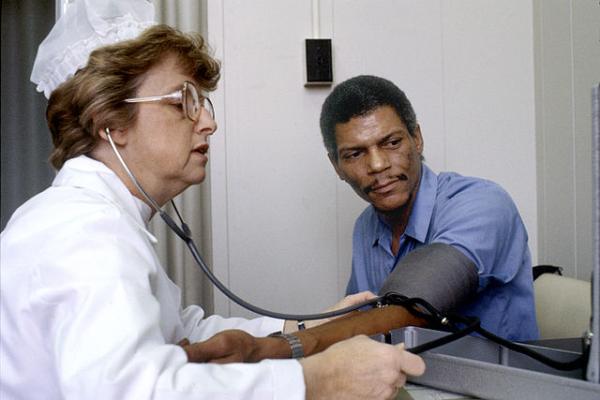Providing consistent high-quality healthcare is difficult and complex, and because frontline workers, who directly interact with patients, are critical to achieving that, attracting, retaining, and motivating these staff is essential. Conversely, anything that enhances turnover of staff can result in compromised care and adverse outcomes.
This issue became important during the height of the COVID-19 pandemic when the question arose of healthcare facilities such as acute care hospitals and nursing homes imposing vaccine mandates for staff. Whether or not to require staff to update COVID vaccinations remains a critical question, given that coverage with 2023–2024 COVID-19 vaccination was only 15.3% among 4,112 acute care hospital personnel and a dismal 10.5% among personnel at more than 14,000 nursing homes, according to a study published in October in the CDC’s Morbidity and Mortality Weekly Report.
The decline to those dangerously inadequate levels followed the expiration in June 2023 of a Biden administration vaccine mandate for health workers and the end of free access to government-funded COVID shots. Mandates imposed on employees by individual facilities could increase vaccination levels, but they could exacerbate turnover if vaccine-hesitant employees choose to quit rather than comply with the mandate.
Thus, healthcare facilities considering mandating staff COVID vaccination face a difficult tradeoff, or at least the perception of one. Despite evidence that vaccine mandates are effective at increasing vaccination coverage and the benefits thereof, facility administrators were reluctant to implement them, fearing that mandates could worsen already high turnover and result in shortages of qualified staff. Although there is evidence that state-level vaccine mandates for health care workers are effective and do not cause high turnover, individual facilities deciding on mandates is somewhat different because employees hesitant to take the vaccine could more easily find a job at a nearby nursing home or other facility that did not impose a mandate.
To quantitate the risk-benefit effects of vaccine mandates, a group of researchers at prominent U.S. academic institutions analyzed copious administrative data covering virtually all the nation’s nursing homes, including payroll-based records on approximately 500 million daily nurse shifts and weekly data on COVID transmission and mortality at each facility. They reported their findings in a Working Paper published by the National Bureau of Economic Research entitled, “The Health and Employment Effects of Employer Vaccination Mandates.”
The analysis calculated the impact of employer-imposed vaccine mandates at 581 nursing homes on disease spread, employment outcomes, and several patient care metrics. Although there was a statistically significant increase in turnover and decrease in staff time spent on patient care at mandate-issuing facilities, the magnitude of these effects was small. For example, the mandates reduced patient care by only about two minutes per patient-day, which is just 1.4% of the mean.
A critical finding was that there was no evidence that the marginally increased staff turnover at vaccine-mandated facilities compromised patient care, as reflected by parameters such as patient falls, pressure ulcers, and urinary tract infections.
On the other hand, the study found large, positive effects of employer-imposed vaccination mandates. Nursing home residents experienced a significant reduction in both COVID infections and mortality. The investigators estimated that vaccine mandates saved one patient life for every two facilities that enacted a mandate.
The important conclusions of the study included:
• “Employer-imposed vaccine mandates were highly effective, and carried very small costs in terms of both staff turnover and patient care.”
• “[F]acility managers were able to handle the sharp but relatively small spike in employee separations after the mandate by hiring new staff in the weeks after the mandates were enforced and increasing hours from full-time staff.”
• “[S]eparations were concentrated among part-time and very part-time staff…”
• [There were] few measurable adverse impacts on patient care, or nursing home quality ratings or deficiency scores, likely because the overall reduction in patient time per staff member was so minimal.”
• These limited effects stand in contrast to the industry-wide fear of mass departure of vaccine-hesitant staff that would cause a cascade of negative consequences in patient care.”
• The effectiveness of mandates in successfully motivating most staff to get vaccinated also stands in contrast to the limited demonstrated effectiveness of less coercive, more persuasion-based measures such as education, outreach and small-scale incentives.”
• “The increases in staff vaccination led to tangible health benefits for both the vaccinated staff and the vulnerable residents they care for – mandate facilities experienced reductions in COVID cases among both staff and residents, and a large reduction in the rates of resident COVID mortality.”
It will be important to remember this study when the next pandemic arrives.




